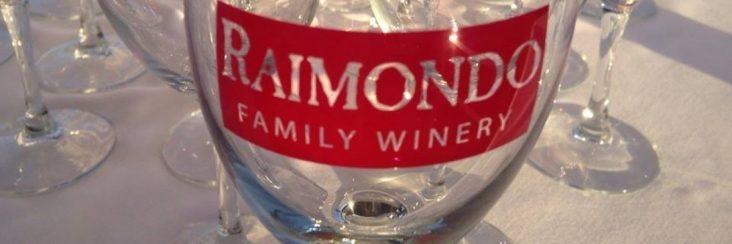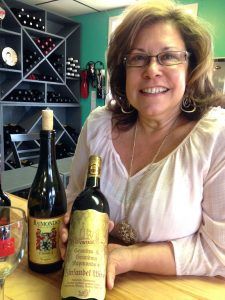Margie Raimondo left the corporate world to manage her Mountain Home-based winery
by July 25, 2016 4:08 pm 1,132 views

Margie Raimondo spent many years working in the marketing and communications department at a large company in Silicon Valley in California. To advance her career she needed to pursue her doctorate, but wine grapes tugged at her soul.
Raimondo decided to take a chance. She exchanged her high paying office job for a wine barrel. She moved to Mountain Home, Ark., and in 2008 opened Raimondo’s Winery. The third generation wine maker sold about 12,000 bottles of wine last year, and she hopes to expand her business into Little Rock, or Northwest Arkansas, or both if she can find the right building or buildings.
“Food is the celebration of life, and wine is an extension of that,” she told Talk Business and Politics.
Wine is big business in Arkansas, but the industry faces many hurdles. “Wine tourism” is one of the fastest growing segments in the tourism industry, and many experts think Arkansas could become a premier destination for those tourists. According to a 2012 economic impact study commissioned by Arkansas Tech University, wine and vineyards generated nearly $21.5 million in tourism revenue in 2010. Winery sales topped $11.4 million that year, alone. Arkansas’ wine, grape, and related industries had an economic impact of $173 million that year.
Arkansas’ has several arcane laws that hamper wines sales, including a face-to-face provision that requires a customer to visit a winery before he or she can buy wine online from the same winery. There are also laws that limit the number wines that can be sold in grocery stores in wet counties.
Opening a winery in Arkansas was difficult, but Raimondo said she has been able to develop a robust business.
Early in the fall, she travels to California and hires a crew to pick her grapes. Work begins at 4 a.m. and ceases by 6 a.m., before the heat affects the quality of grapes. While she’s in California she begins the fermentation process. The grapes are then shipped to Arkansas where she finishes her own process. She stores her wines in a warehouse in North Little Rock.

Weather is the biggest hazard in the wine making process, she said. If the grapes are plucked when the temperature is too hot, it greatly affects the quality of the product, she said.
“You only get to make wine one time a year,” she said.
Raimondo has to store her vineyard wares at a federally approved warehouse, and there isn’t one near Mountain Home, she said. One reason she wants to expand into the Little Rock market is the proximity to her warehouse. Another reason why she has contemplated opening a winery in Northwest Arkansas in the availability of grapes, and the wine consumption market is excellent there, she said.
At least 306,000 tourists visited Arkansas in 2010 because of its wine offerings, according to the same study. Many “wine trails” touted by the state send visitors on a sprawling journey from Eureka Springs, to Rogers, to the Arkansas River Valley, and other hot spots for wine tasting. Mountain Home is a major tourist spot in the state, but Raimondo’s Winery isn’t often listed on those wine tours. It is now listed on the state of Arkansas’ website touting wine trails.
Raimondo has built her customer base mostly through word of mouth. Tourists account for a lot of her sales, too. She offers at least 16 different types of wine, and she also bottles her own vinaigrettes, olive oils, gourmet foods, and other offerings. Customers area able to have a wine tasting at her kitchen table near the front door. The winery is designed like a kitchen, with the intention of giving it a homey atmosphere, she said.
Her wines and other products can be found in liquor stores, novelty shops, and other places. At one time she was in talks with a major retailer to market her oils and gourmet foods. Those negotiations have stalled at her behest, she said.
“Sometimes the best business decision is to know when to not do something,” she said.
To perfect her wine making, Raimondo has traveled back to her family’s native land, Sicily, to learn more about the process. She’s also taken wine and food courses through the years, even when she was working in the corporate world. Although she’s a third generation wine maker, she is the first in her family to do it commercially.
“This is my passion … this is what I love to do. If it never gets bigger than this … I’m fine with that,” she said.
